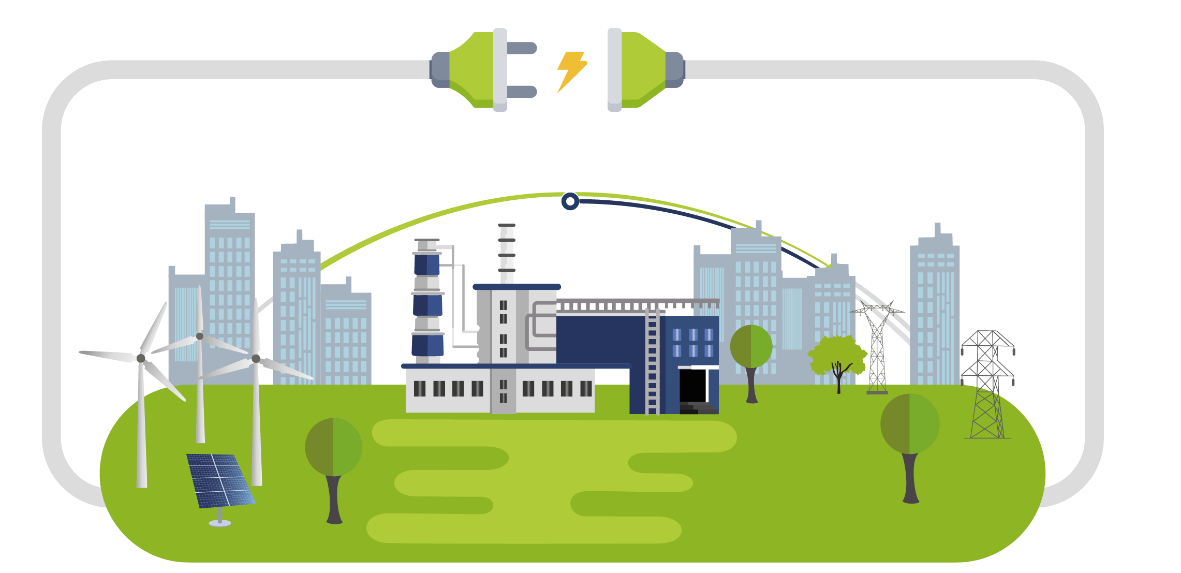The EU has set ambitious goals to reduce greenhouse gas emissions. To achieve these goals, the share of renewable energy sources must grow rapidly. This fundamentally changes the role of conventional power generation and raises the question: How will the energy system of the future look like? By increasing the efficiency and flexibility of conventional power plants and reducing their environmental impact, three H2020 projects give concrete answers:
TURBO-REFLEX, PUMP-HEAT and sCO2-FLEX.
Towards a dynamic energy system
With a joint public workshop TURBO-REFLEX, PUMP-HEAT and sCO2-FLEX invite you to take a new perspective on tomorrow’s energy production: “The future energy system – meeting complexity with flexibility” offers three differenttechnological solutions and stakeholder positions on a complex subject matter. A forum for discussion and exchange, this open event presents up-to-date results from TURBO-REFLEX, PUMP-HEAT and sCO2-FLEX projects and explores potential areas for collaboration. Current developments in the energy sector and future policy needs will be addressed. A panel discussion with European policy makers and representatives from the industry and the energy sector will round up the event. A preliminary agenda is available here.
|
|
|
|
Executive Vice President R&D at Ansaldo Energía
Dr Christian Aalburg
TURBO-REFLEX coordinator and Senior Staff Engineer at General Electric
Ms Albannie Cagnac
sCO2-FLEX coordinator and Project Manager for R&D at Électricité de France
Mr Haitze Siemers
Head of Unit New energy technologies, innovation and clean coal at the EU Commission
Prof Alessandro Sorce
University of Genoa, PUMP-HEAT vice coordinator
The new role of conventional power plants
The European Commission’s “Energy Roadmap 2050” targets aim for a share of at least 64% renewable energy sources by 2050. But renewables are intermittent and non-dispatchable by nature. Solutions for cost effective, large scale energy storage have yet to be developed and deployed. Dr Christian Aalburg, coordinator of the H2020 project TURBO-REFLEX, is convinced, that existing power plants have an important role to play to fill the gap for back-up capacity. But this implies significant retrofitting: “The mission of TURBO-REFLEX is to improve existing plants so that they can better provide the flexible back-up power needed. This paves the way for a larger share of renewables in the European energy system.”
Prof. Alberto Traverso, coordinator of the H2020 project PUMP-HEAT, believes that natural gas fired Combined Cycle (CC) power plants will remain the cleanest conventional solution for matching the ambitious EU energy goals. Leveraging on existing installations and energy networks, “PUMP-HEAT proposes a technological solution that enables synergies between different energy networks, namely gas, electrical and thermal grids, in order to provide more flexibility, more resilience and to allow a larger penetration of variable renewables.”
The project sCO2-FLEX aims at building sCO2 expertise for fossil electricity generation and for its possible application to renewables such as concentrated solar power and biomass. The consortium believes that this technology has the potential to become game-changing for coal and lignite power plants. As sCO2-FLEX coordinator Albannie Cagnac states: “It meets the EU objectives for highly flexible and efficient conventional power plants by reducing greenhouse gas emissions, residue disposal and, above all, water consumption.”
TURBO-REFLEX, PUMP-HEAT and sCO2-FLEX have been supported by the European Union with a total funding of 18.7 million Euros for developing and demonstrating new technological solutions to support the future energy system.
TURBO-REFLEX aims to develop and optimise technologies applicable to a selected set of turbomachinery engine components, which can be used to retrofit existing power plants to reduce costs per cycle, increase low load capability of existing plants and increase load following capability.
PUMP-HEAT integrates heat pumps, thermal energy storage and advanced controls to take advantage of the unexploited energy in power plants and to un-tap the flexibility potential of cogenerative installations, increasing their annual operational efficiency.
sCO2-FLEX is looking to develop and validate a scalable modular design of a 25MWe Brayton cycle using supercritical CO2 that will enable an increase in the operational flexibility (fast load changes, fast start-ups and shut-downs) and in the efficiency of existing and future coal and lignite power plants, thus reducing their environmental impacts in line with EU targets. The project aims at building expertise on sC02 for electricity generation and the consortium is also interested in investigating its possible application to renewables such as CSP (Concentrated Solar Power) and biomass.
Event Organisation:
TURBO-REFLEX project office / ARTTIC
Contact person: Elsa Calmette
phone +49 (0)89 248 8303-34
email: turbo-reflex-arttic@eurtd.com
Registration and further information here.
